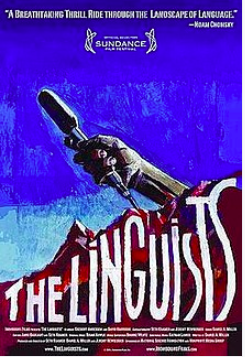
Ideal for introductory linguistic as well as cultural anthropology classes focused on the nation-state or childhood, this 104 minute documentary film helps students better understand the real-world complexities of conducting anthropological fieldwork with a focus on the documentation and preservation of endangered languages. In multiple arrival stories, we see how two linguists, David Harrison and Gregory Anderson, struggle to locate the ever-decreasing speakers of endangered languages in Siberia, India, and Bolivia. While preliminary research helps them select a region as well as connect with key informants, they also depend on snowball sampling as they rush to track down native speakers with whom they conduct exploratory interviews. This documentary highlights how the production of anthropological knowledge is shaped by the relationships between local indigenous communities around the world and nation-states. Documenting endangered languages, as the film illustrates, also necessitates studying the forms of oppression that endanger them.
The film stresses that the generational decline of people who speak endangered languages is often the result of forced assimilation projects like the state-driven separations of indigenous children from their communities. Places like boarding schools where teachers shame children for speaking indigenous languages decreases the likelihood these children will teach them to future generations.
The film could also complement anthropology of childhood classes because it calls attention to the agential roles children play in language acquisition and transmission. We see this in India where students from the Bonda tribe are required to learn English, which is perceived as a money-making language that promises children and their families a better future.
How languages become linked with the past, present, and the future is key to addressing the ways in which power-dynamics prioritize learning imperialist languages exclusively. The film underscores the point that language preservation efforts will not be successful if they are only driven by Western academics. Addressing the diminishment of linguistic diversity requires a much more systemic approach, such as the active participation of indigenous communities in language preservation projects, as well as widespread political reforms that, for instance, require national educational systems to bolster multi-language learning. The linguists emphasize that collective action is needed now because the world is losing indigenous languages at exponential rates. And the risks for losing humanity’s linguistic diversity are profound because when languages become endangered the diverse ways people understand and experience the world become endangered as well.
Check out the for The Linguists on Youtube. To view the complete movie, see if you can access it through a library or purchase a copy directly from the Ironbound Films production company’s website .
PBS also has complementary resources for teaching the film on their website. They introduce the topic of , give of how words can reflect unique worldviews, offer opportunities to , key linguistic terms, and provide for further reading on endangered languages. They also offer a and focused on teaching students in high school or college about language loss.
Resource contributed by: Megan Neal, University of California, Irvine
Megan Neal is a graduate student at the University of California, Irvine. Her research centers on how disabled citizens in La Paz, Bolivia challenge normative understandings of development, the senses, and political participation. She also serves as the Web Content Producer for the Teaching and Learning Anthropology Journal’s website.
